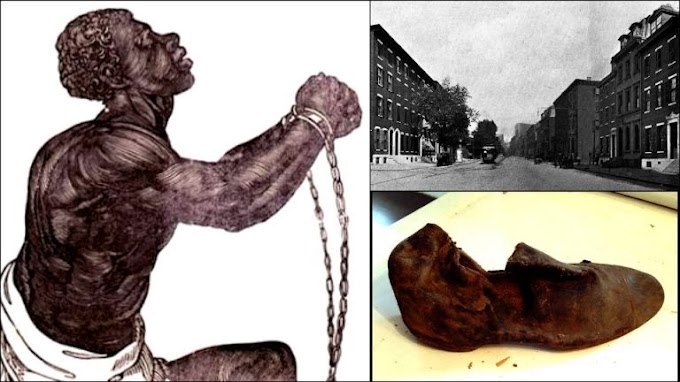History: Funmilayo Ransome-Kuti And The Massive Abeokuta Women Revolt
…the women’s persistence paid off. In 1948, the Special Tax Assessment Policy on women was revoked, but the damage had been done… On July 28, Alake announced that he was leaving the Afin for Osogbo, where he was to stay for a period of twenty-eight months.
On September 13, 1947, a ten-paragraph Resolution was signed by Mrs Eniola Soyinka and fifteen other members of the Women’s Union, Abeokuta. It was addressed to the Egba Central Council, headed by Oba Ladapo Ademola II, the Alake of Abeokuta, with copies sent to the Resident of the Abeokuta Province, the Chief Secretary to the Government, the Governor, and the Secretary of State for the Colonies in London. It stated, inter alia:
…Now therefore, be it resolved and it is hereby resolved, that we the entire members of the Women’s Union in Egbaland ….. are hereby unanimous in our heart and voice in proclaiming to all people with all the emphasis at our command that we completely disassociate ourselves from this resolution passed by the Alake and his council, and completely associate ourselves with all that had been written by our President, (Funmilayo Ransome-Kuti) in the Daily Worker.
The women were responding to an earlier Resolution issued by the Alake and his Council. The two Resolutions in contention related to an article by Funmilayo Ransome-Kuti, published in a British newspaper in 1947, which called on the British women to help raise awareness about the “various disabilities women in Egbaland were facing.”
The contents of the article displeased Oba Ademola II, who summoned a meeting with his Council, where they issued a Resolution that the issues raised in Ransome-Kuti’s article were untrue.
Ransome-Kuti’s article were untrue.
A year earlier, the Women’s Union was created in the home of Ransome-Kuti on the premises of Abeokuta Grammar School, to offer literacy classes to market women. However, lateness and absenteeism by many of the women to the classes, was to change to course of history. The women explained the reasons for their constant absence or tardiness, was because they were being harassed and arrested by tax officials, while their goods were confiscated. Indeed, this had gone on for several years, but now, according to the women, was time to act.
This was the beginning of women’s protests, which called for an abolishment of the Special Assessment Tax Policy. The chain of events, which followed, culminated in the Alake going into exile in July 1948.
The temporary exile of the traditional ruler by the women was not as easy as it sounds. They faced various forms of official pushback. For example, to prevent them from holding public meetings, requests for permission to meet or hold processions were not granted or were limited to not more than 10 persons, within a specific time frame and a specific place. Indeed, meetings held anywhere but on the grounds of Abeokuta Grammar School, were deemed to be illegal, unless “the permission of the representative of the Oba Alaiyeluwa, the Alake has first been obtained in writing.” Similarly, according to correspondence written in December 1947, the act of bell-ringing to summon the Union’s meetings at a certain time and place was “an offence under native customary law.”
On 16th July, 1946, the Bata Shoe Company opened a shoe shop in one of Oba Ademola’s houses in Itoku Market. On this very day, at about 11.30 am, four women members of the Abeokuta Women’s Union came to tell Mrs F Ransome-Kuti that the Alake sent a police in plain dress, Karunwi by name, to drive all the women who are selling their wares in the space between Oba Ademola’s three story house and the shop newly hired by Bata Company, that this Constable Karunwi was kicking and knocking down their tables on which they exhibited their marketing goods….
Another, written on behalf the market women on October 5, 1946, stated that:
We, your children, entreat you respectfully and obediently kindly to consider the cases of women who have been specially assessed.. because there is no work that women do at present to justify payment of special assessments….. Therefore the system of conditional sale now in practice does not permit of any appreciable gains on goods on that anybody.
Delayed response to the petitions spurred processions and protests, which took place in the courtyard of the Alake’s Afin (Palace). According to historical records, the first round of overnight protests took place at the palace ground on November 29 – 30, 1947. The women went prepared with food, water and mats to lay siege. All through the night, ribald songs and chants accompanied their demands.
Prior to the November episode at the Afin, several meetings between the two sides had taken place. During the meeting held on Sunday, November 30, 1947, the Councillors and Chiefs listened to the ‘Grievances of Abeokuta Women’s Union.’ According to the Minutes of the Meeting, twelve women, including Ransome-Kuti, Soyinka and Amelia Osimosu, attended as “spokesmen for the women who staged a demonstration to the Afin since yesterday against taxation of women in Egbaland.”
Ransome-Kuti said:
eetings between the two sides had taken place. During the meeting held on Sunday, November 30, 1947, the Councillors and Chiefs listened to the ‘Grievances of Abeokuta Women’s Union.’ According to the Minutes of the Meeting, twelve women, including Ransome-Kuti, Soyinka and Amelia Osimosu, attended as “spokesmen for the women who staged a demonstration to the Afin since yesterday against taxation of women in Egbaland.”
Ransome-Kuti said:
Those who were taxed in Abeokuta were sellers of firewood, leaves and pepper otherwise known as petty traders. A woman who defaulted was sued for the court and she appeared before the court with her baby at her side…There are many women who are poverty-stricken and should not be asked to pay poll tax.
Soyinka noted that “Income tax was imposed arbitrarily on women by the Assessment Committee because of the commission of two shillings per Pound which they were paid. The Egba women are groaning in poverty”, while Mrs Osimosu said: “Many women had to go on loans in order to be able to carry on the trade and the result always landed them in debt.”
It was clear that the Members of the Council were displeased by the turn of events. The Minutes of a meeting held one month later recorded that the Jagunna of the Christians, M. Osota said: “It appeared the women were looking for a way to enter into politics”; while the Agura of Gbagura said: “The behaviour of the women was an insult to men.” The Chiefs concluded that “Mrs Ransome Kuti should be cited before the Council to explain the reason for her conduct in coming to obstruct the Alake in passage on the night of 29/30 November 1947.”
It has been seventy-four years since the activism of the Women’s Union. It was a historical lesson in resolve which also inspired their fellow women activists such as Margaret Ekpo and Gambo Sawaba.
To complement the protests and petitions, Ransome-Kuti engaged the press with correspondence. On January 21, 1948, she wrote a ‘Letter to the Editor’ hoping it would be syndicated in the Daily Service, West Africa Pilot, Daily Times, and the Comet. Titled ‘Egba Women’s Suffering is Becoming Unbearable,’ it explained in part:
On the assurance from the Egba Central Council that all matters relating to taxation of women would be suspended…. During this period of waiting, Egba Women have been summoned, worried, harassed and ill-treated by the tax collectors. Others have been actually jailed by the Court. A woman was jailed with a nine-day old baby… Will the authorities please act without any further delay? Thanking you Mr Editor for space allowed.
Abeokuta Province was constantly in the news. Accusations and counter-accusations of assault between the women, colonial officials, native authority police and other reports, filled the newspapers.
However, the women’s persistence paid off. In 1948, the Special Tax Assessment Policy on women was revoked, but the damage had been done.
On July 28, Alake announced that he was leaving the Afin for Osogbo, where he was to stay for a period of twenty-eight months.
Thereafter, women in Abeokuta Province participated in local council elections and won. In 1949, four women, namely: Funmilayo Ransome-Kuti, Amelia Osimosu, V.A. Soleye and Nusiratu Oduola, were elected to the Egba Central Council as women representatives. Their catchphrase, “No Taxation without Representation” also paid off.
Credit: Tayo Agunbiade









0 Comments